
NATO and NATO-Russia Summits bring modest opportunities for progress in the coming years.
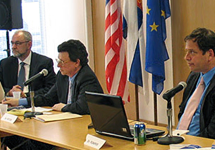
MAY 10, 2010: A panel discussion held between sessions of the RevCon.
William Potter, Leonard Spector, Lawrence Scheinman, Gaukhar Mukhatzhanova, Nikolai Sokov April 28, 2010 Introduction Nuclear-Weapons-Free Zones (NWFZs) are recognized as important tools of international nuclear nonproliferation and disarmament. In 2009, both the Central Asian NWFZ Treaty and the African NWFZ Treaty (Treaty of Pelindaba) entered into force. NWFZs now cover 116 countries including the entire territory of the southern hemisphere. […]
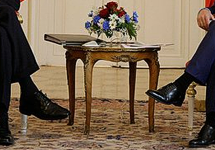
The conclusion of the Treaty of Prague is a success. Now Obama and Medvedev need to outline the next treaty.
The new Military Doctrine appears to reduce the role of nuclear weapons in Russia’s national security policy.
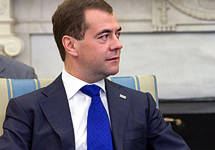
Contrary to expectations, the new doctrine reduces reliance on nuclear weapons.
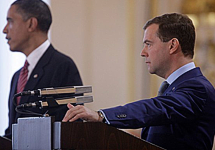
Prospects for a new strategic arms control agreement may be hampered by domestic politics in both countries.
Since the late 1990s, a fresh interest in nuclear weapons has emerged, an interest many thought would diminish or disappear after the Cold War.

A major study by CNS addresses four emerging issues in arms control, disarmament, and nonproliferation where Germany can contribute significantly.
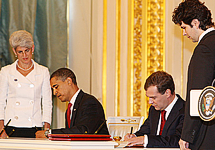
Obama and Medvedev agreed on a framework to guide their negotiators in a new strategic arms agreement.